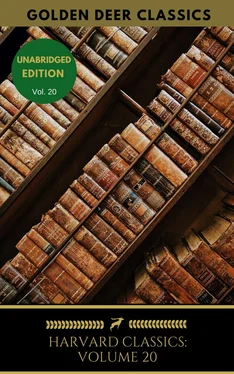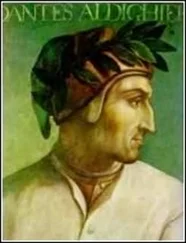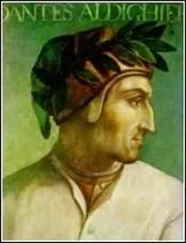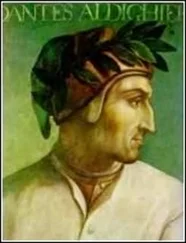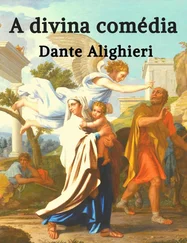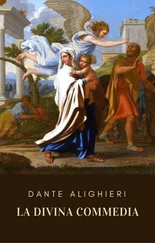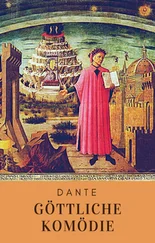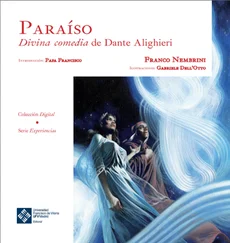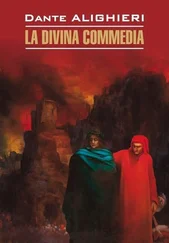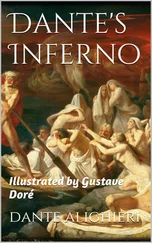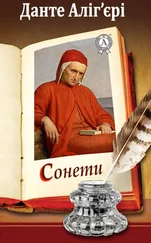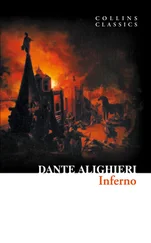Array Dante Alighieri - Harvard Classics Volume 20
Здесь есть возможность читать онлайн «Array Dante Alighieri - Harvard Classics Volume 20» — ознакомительный отрывок электронной книги совершенно бесплатно, а после прочтения отрывка купить полную версию. В некоторых случаях можно слушать аудио, скачать через торрент в формате fb2 и присутствует краткое содержание. Жанр: unrecognised, на английском языке. Описание произведения, (предисловие) а так же отзывы посетителей доступны на портале библиотеки ЛибКат.
- Название:Harvard Classics Volume 20
- Автор:
- Жанр:
- Год:неизвестен
- ISBN:нет данных
- Рейтинг книги:5 / 5. Голосов: 1
-
Избранное:Добавить в избранное
- Отзывы:
-
Ваша оценка:
- 100
- 1
- 2
- 3
- 4
- 5
Harvard Classics Volume 20: краткое содержание, описание и аннотация
Предлагаем к чтению аннотацию, описание, краткое содержание или предисловие (зависит от того, что написал сам автор книги «Harvard Classics Volume 20»). Если вы не нашли необходимую информацию о книге — напишите в комментариях, мы постараемся отыскать её.
1. The Divine Comedy, by Dante Alighieri
Also available:
The Complete Harvard Classics Collection (51 Volumes + The Harvard Classic Shelf Of Fiction)
50 Masterpieces You Have To Read Before You Die (Golden Deer Classics)
Harvard Classics Volume 20 — читать онлайн ознакомительный отрывок
Ниже представлен текст книги, разбитый по страницам. Система сохранения места последней прочитанной страницы, позволяет с удобством читать онлайн бесплатно книгу «Harvard Classics Volume 20», без необходимости каждый раз заново искать на чём Вы остановились. Поставьте закладку, и сможете в любой момент перейти на страницу, на которой закончили чтение.
Интервал:
Закладка:
And orbits. Colours variegated more
Nor Turks nor Tartars e’er on cloth of state
With interchangeable embroidery wove,
Nor spread Arachne o’er her curious loom.
As oft-times a light skiff, moor’d to the shore,
Stands part in water, part upon the land;
Or, as where dwells the greedy German boor,
The beaver settles, watching for his prey;
So on the rim, that fenced the sand with rock,
Sat perch’d the fiend of evil. In the void
Glancing, his tail upturn’d its venomous fork,
With sting like scorpion’s arm’d. Then thus my guide,
“Now need our way must turn few steps apart,
Far as to that ill beast, who couches there.”
Thereat, toward the right our downward course
We shaped, and, better to escape the flame
And burning marle, ten paces on the verge
Proceeded. Soon as we to him arrive,
A little farther on mine eye beholds
A tribe of spirits, seated on the sand
Near to the void. Forthwith my master spake:
“That to the full thy knowledge may extend
Of all this round contains, go now, and mark
The mien these wear: but hold not long discourse.
Till thou returnest, I with him meantime
Will parley, that to us he may vouchsafe
The aid of his strong shoulders.” Thus alone,
Yet forward on the extremity I paced
Of that seventh circle, where the mournful tribe
Were seated. At the eyes forth gush’d their pangs,
Against the vapors and the torrid soil
Alternately their shifting hands they plied.
Thus use the dogs in summer still to ply
Their jaws and feet by turns, when bitten sore
By gnats, or flies, or gadflies swarming round.
Noting the visages of some, who lay
Beneath the pelting of that dolorous fire,
One of them all I knew not; but perceived,
That pendent from his neck each bore a pouch [116]
With colours and with emblems various mark’d,
On which it seem’d as if their eye did feed.
And when, amongst them, looking round I came,
A yellow purse [117]I saw with azure wrought,
That wore a lion’s countenance and port.
Then, still my sight pursuing its career,
Another [118]I beheld, than blood more red,
A goose display of whiter wing than curd.
And one, who bore a fat and azure swine [119]
Pictured on his white scrip, address’d me thus:
“What dost thou in this deep? Go now and know,
Since yet thou livest, that my neighbor here
Vitaliano [120]on my left shall sit.
A Paduan with these Florentines am I.
Oft-times they thunder in mine ears, exclaiming,
‘Oh! haste that noble knight, [121]he who the pouch
With the three goats will bring.’” This said, he writhed
The mouth, and loll’d the tongue out, like an ox
That licks his nostrils. I, lest longer stay
He ill might brook, who bade me stay not long,
Backward my steps from those sad spirits turn’d.
My guide already seated on the haunch
Of the fierce animal I found; and thus
He me encouraged. “Be thou stout: be bold.
Down such a steep flight must we now descend.
Mount thou before: for, that no power the tail
May have to harm thee, I will be i’ th’ midst.”
As one, who hath an ague fit so near,
His nails already are turn’d blue, and he
Quivers all o’er, if he but eye the shade;
Such was my cheer at hearing of his words.
But shame soon interposed her threat, who makes
The servant bold in presence of his lord.
I settled me upon those shoulders huge,
And would have said, but that the words to aid
My purpose came not, “Look thou clasp me firm.”
But he whose succour then not first I proved,
Soon as I mounted, in his arms aloft,
Embracing, held me up; and thus he spake:
“Geryon! now move thee: be thy wheeling gyres
Of ample circuit, easy thy descent.
Think on the unusual burden thou sustain’st.”
As a small vessel, backening out from land,
Her station quits; so thence the monster loosed,
And, when he felt himself at large, turn’d round
There, where the breast had been, his forked tail.
Thus, like an eel, outstretch’d at length he steer’d,
Gathering the air up with retractile claws.
Not greater was the dread, when Phaeton
The reins let drop at random, whence high heaven,
Whereof signs yet appear, was wrapt in flames;
Nor when ill-fated Icarus perceived,
By liquefaction of the scalded wax,
The trusted pennons loosen’d from his loins,
His sire exclaiming loud, “Ill way thou keep’st,”
Than was my dread, when round me on each part
The air I view’d, and other object none
Save the fell beast. He, slowly sailing, wheels
His downward motion, unobserved of me,
But that the wind, arising to my face,
Breathes on me from below. Now on our right
I heard the cataract beneath us leap
With hideous crash; whence bending down to explore,
New terror I conceived at the steep plunge;
For flames I saw, and wailings smote mine ear:
So that, all trembling, close I crouch’d my limbs,
And then distinguish’d, unperceived before,
By the dread torments that on every side
Drew nearer, how our downward course we wound.
As falcon, that hath long been on the wing,
But lure nor bid hath seen, while in despair
The falconer cries, “Ah me! thou stoop’st to earth,”
Wearied descends, whence nimbly he arose
In many an airy wheel, and lighting sits
At distance from his lord in angry mood;
So Geryon lighting places us on foot
Low down at base of the deep-furrow’d rock,
And, of his burden there discharged, forthwith
Sprang forward, like an arrow from the string.
Canto XVIII
Argument.—The Poet describes the situation and form of the eight circle, divided into ten gulfs, which contain as many different descriptions of fraudulent sinners; but in the present Canto he treats only of two sorts: the first is of those who, either for their own pleasure, or for that of another, have seduced any woman from her duty; and these are scourged of demons in the first gulf: the other sort is of flatterers, who in the second gulf are condemned to remain immersed in filth.
There is a place within the depths of Hell
Call’d Malebolge, all of rock dark-stain’d
With hue ferruginous, e’en as the steep
That round it circling winds. Right in the midst
Of that abominable region yawns
A spacious gulf profound, whereof the frame
Due time shall tell. The circle, that remains,
Throughout its round, between the gulf and base
Of the high craggy banks, successive forms
Ten bastions, in its hollow bottom raised.
As where, to guard the walls, full many a foss
Begirds some stately castle, sure defence
Affording to the space within; so here
Were model’d these: and as like fortresses,
E’en from their threshold to the brink without,
Are flank’d with bridges; from the rock’s low base
Thus flinty paths advanced, that ’cross the moles
And dykes struck onward far as to the gulf,
That in one bound collected cuts them off.
Such was the place, wherein we found ourselves
From Geryon’s back dislodged. The bard to left
Held on his way, and I behind him moved.
On our right hand new misery I saw,
New pains, new executioner of wrath,
That swarming peopled that first chasm. Below
Were naked sinners. Hitherward they came,
Meeting our faces, from the middle point;
With us beyond, but with a larger stride.
E’en thus the Romans, [122]when the year returns
Читать дальшеИнтервал:
Закладка:
Похожие книги на «Harvard Classics Volume 20»
Представляем Вашему вниманию похожие книги на «Harvard Classics Volume 20» списком для выбора. Мы отобрали схожую по названию и смыслу литературу в надежде предоставить читателям больше вариантов отыскать новые, интересные, ещё непрочитанные произведения.
Обсуждение, отзывы о книге «Harvard Classics Volume 20» и просто собственные мнения читателей. Оставьте ваши комментарии, напишите, что Вы думаете о произведении, его смысле или главных героях. Укажите что конкретно понравилось, а что нет, и почему Вы так считаете.
